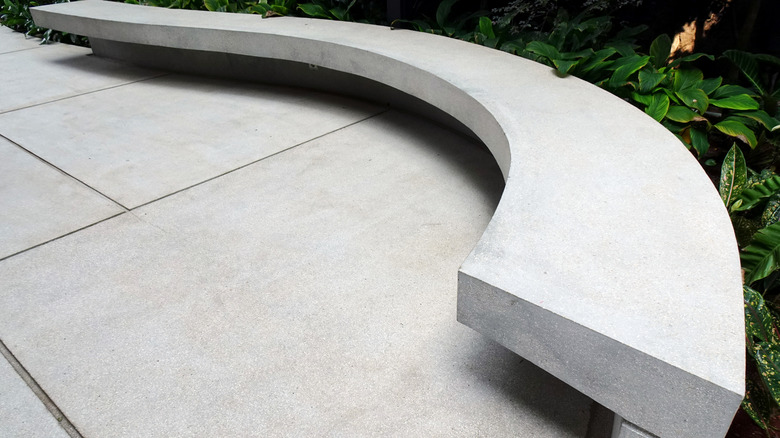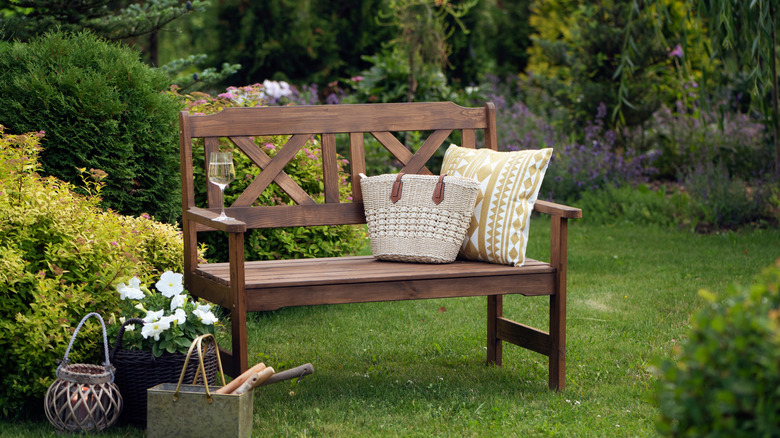Concrete Vs Wood: Which Is The Better Material For A Garden Bench?
There's no shortage of materials for garden benches. Each has its own aesthetic and practical advantages. However, two materials often come to mind here: concrete and wood. To figure out which one is better for a garden bench, it's worth weighing the pros and cons of both.
When it comes to the advantages of concrete benches, it's safe to say that durability is at the top of the list. They are built to withstand heavy use and harsh weather conditions. Good-quality concrete can last for decades with proper care. Speaking of which, these benches don't require much maintenance, either — just an occasional sealing every few years to protect from moisture and frost cycles. Another major advantage is that you can customize them into any shape, size, color, or texture. You can even add engraved patterns and designs in the concrete for a personal touch.
However, there are some downsides, too. As you may have expected, concrete is by far the heaviest of all bench materials. This makes them difficult to move around — and fairly expensive to ship. It also means they're not ideal if you're going for a flexible setting that you'd switch around every now and then. Plus, they can get pretty uncomfortable to sit on for more than a few minutes, not to mention how cold they can be in winter and scorching hot under the summer sun. That being said, you can solve the comfort issue by placing patio cushions on the bench and a patio umbrella over it for shade. You can then easily clean your patio cushions or swap them out from time to time.
Is wood a better material for your garden bench?
Wood is perhaps the most common material for outdoor benches, and for good reason. To begin with, wooden benches are naturally beautiful and bring a warm and timeless aesthetic to your outdoor space. They blend perfectly with the trees and plants in your garden. The material is also known for being highly versatile and affordable. This is why it has been popular throughout history. You can find wooden benches in a wide range of shapes and designs. Much like concrete, they are also customizable, meaning you can style your garden bench to complement your outdoor space. Plus, you can easily repair or repaint your bench to prolong its lifespan. Another advantage is that wood, being a renewable source, is eco-friendly — as long as you have the habit of repurposing or restoring your old outdoor furniture when the time comes.
Of course, wood has its fair share of disadvantages, too. It is vulnerable when exposed to harsh weather conditions and can eventually start to fade, decay, and splinter. Teak, cedar, and redwood benches are durable and resistant to rot, insects, and weather, but they still require regular upkeep — sanding, staining, and refinishing — to last longer. They can also be pretty expensive. Although many affordable options exist, quality pieces with unique craftsmanship tend to be on the higher end of the price spectrum. If you don't mind the price and maintenance, however, wood can be a solid choice. Teak, in particular, is exceptionally durable, with its natural oils that keep pests away and prevent it from decaying. Plus, it ages like fine wine even if left untreated.

